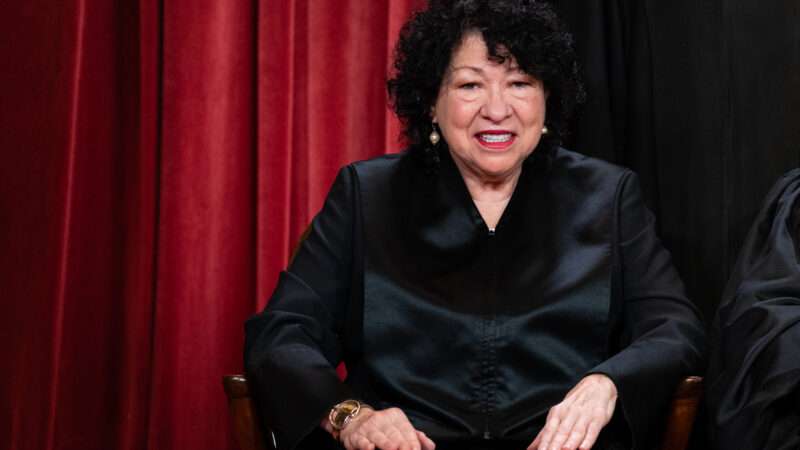
The U.S. Supreme Court heard oral arguments yesterday in United States v. Hansen, a case that asks whether a federal law that criminalizes the act of encouraging or inducing unlawful immigration violates the First Amendment. In the run-up to the oral arguments, free speech advocates lined up overwhelmingly against the law, with the Foundation for Individual Rights and Expression, the Cato Institute, and the Electronic Frontier Foundation among the groups who filed amicus briefs urging the law's invalidation. Alas, judging by the tenor of the oral arguments, a majority of the Court seemed disinclined to adopt that sort of broad free speech stance in this case.
At least one justice, however, did seem quite open to overruling the law as an overbroad restriction that violated freedom of speech. "Under this statute," observed Justice Sonia Sotomayor, "we're criminalizing words related to immigration. And I thought there were only certain statutes that were immune to First Amendment challenges," such as laws governing "obscenity" or "fighting words," she said. "Otherwise, everything else is subject to the First Amendment and strict scrutiny. So why should we uphold a statute that criminalizes words?"
Sotomayor then pressed Principal Deputy Solicitor General Brian Fletcher to explain whether the federal government's position would criminalize speech by U.S. citizens who tell their unlawfully present family members they are welcome to live with them. What about "the grandmother who lives with her family who's illegal," Sotomayor asked. "The grandmother tells her son she's worried about the burden she's putting on the family, and the son says, Abuelita, you are never a burden to us. If you want to live here—continue living here with us, your grandchildren love having you….Can [the government] prosecute this?"
Fletcher started to say, "I think not," when Sotomayor swiftly cut him off. "Stop qualifying with 'think,'" the justice told the government lawyer, "because the minute you start qualifying with 'think,' then you're rendering asunder the First Amendment." In other words, in the face of a broadly written law that seemingly criminalizes all sorts of lawful speech, why should anybody trust the government to act leniently?
This statute "criminalizes words," Sotomayor stressed yet again. "Shouldn't we be careful before we uphold that kind of statute?"
It was exactly the right question to ask. Regrettably, Sotomayor may soon find herself writing the right answer in dissent.
The post Sotomayor Grills Government Lawyer Over Law 'Criminalizing Words Related to Immigration' appeared first on Reason.com.







